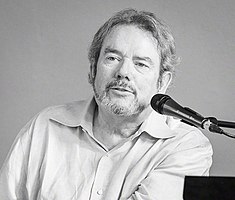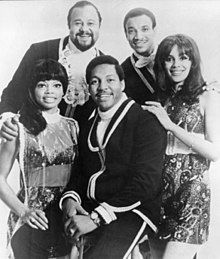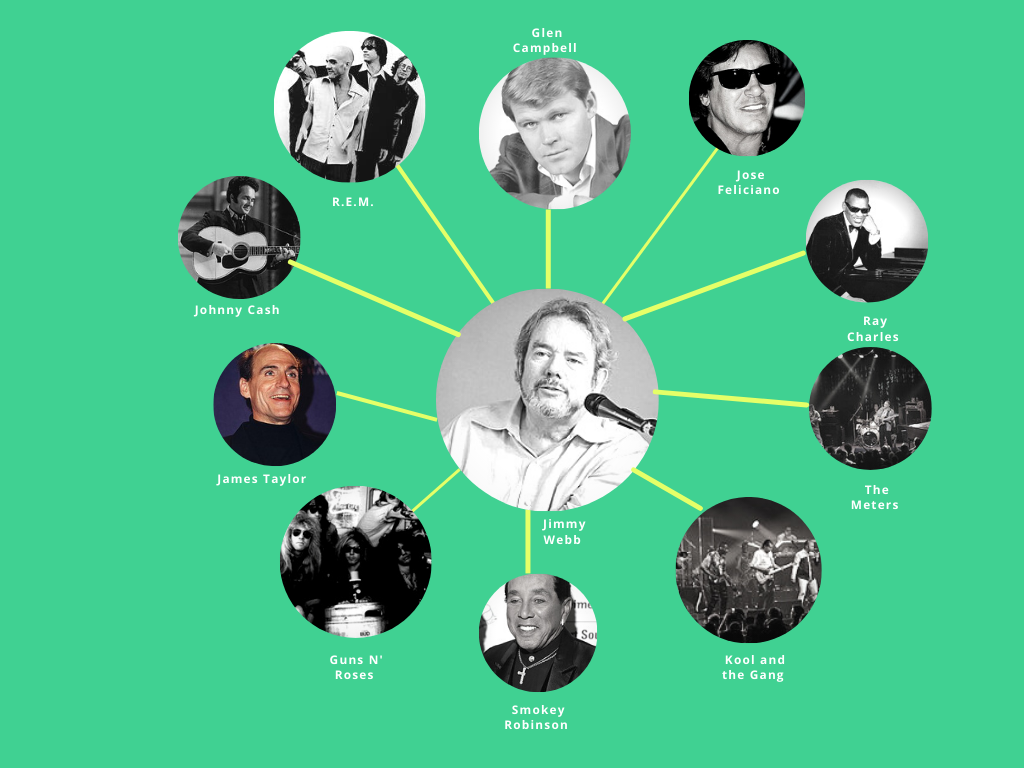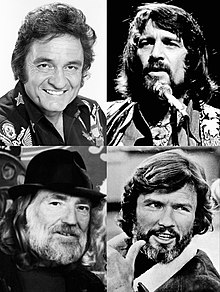
And I need you more than want you
And I want you for all time
Accepting 3 Grammy awards in one year for three different records? Having your songs performed by everyone from Frank Sinatra to Glen Campbell to Guns N’ Roses? Having one of your songs placed in the National Recording Registry? Ladies and Gentlemen, it’s time to discuss one of songwriting’s all-time greats, Mr. Jimmy Webb!
Jimmy Webb was born in 1946 in Elk City, Oklahoma. His father was a Baptist minister who presided over rural churches in Oklahoma and Texas. It was Jimmy’s mother that encouraged him to learn to play the piano and organ and, by the time he turned 12, he was playing in the choir at churches where his dad would preach.
Not surprisingly, Jimmy’s home was very conservative. His father restricted radio listening to only country and gospel music. However, his father couldn’t restrict what Jimmy heard outside the house. By the late 1950s his musical tastes were being influenced by what he heard on the radio, including Elvis Presley. In 1961 he bought his first record, “Turn Around, Look At Me” by Glen Campbell. That purchase would foreshadow a partnership that would dominate radio airplay in the late 1960s.
In 1964 Jimmy’s family moved to southern California and Jimmy decided to try to make a career in music. By day he composed religious songs to the approval of his parents. At night he played in a rock ‘n roll band.
He eventually landed his first job in the music industry, which was transcribing other artists’ songs. He continued writing his own songs, and 1965 would establish Jimmy as an up and coming songwriter. The Supremes recorded his song “My Christmas Tree” for the album “Merry Christmas, The Supremes”. He met singer songwriter Johnny Rivers, who signed Jimmy to a publishing deal and recorded one of Jimmy’s songs, “By the Time I Get to Phoenix”. That song would eventually be named the third most performed song between 1940 – 1990, and one of Jimmy’s most covered songs. The Musical Tree below is just a partial list of artists who covered “By The Time I Get to Phoenix.

In 1966 Jimmy Webb was asked to work on a General Motors commercial. To his delight, he found out that one of his heroes, Glen Campbell, would also be working on the commercial. Jimmy was sporting a Beatle haircut at the time and it had been barely five years since he had purchased his first record by Glen Campbell. He approached Glen Campbell, stuck out his hand and introduced himself. Campbell looked up, said “Get a haircut”, and ignored him. By the time a year had passed, Glen Campbell would no longer ignore Jimmy Webb, nor would he criticize his hair.
In 1967 Rivers asked Jimmy to write 7 songs for his album “Rewind”, however Jimmy’s big break was right around the corner. Rivers asked Jimmy to write songs for a new group that he was producing. The name of the group was the 5th Dimension.

Jimmy contributed 5 songs, including the title track, “Up, Up and Away, which became a top 10 hit after being released in May of 1967. The 5th Dimension’s next album, released later that year, was called “The Magic Garden”, and featured 11 Jimmy Webb compositions. In November of 1967 Jimmy’s idol Glen Campbell released his version of “By The Time I Get to Phoenix” which went to number 26 on the charts and became a pop standard. Both “Up, Up and Away” and “By the Time I Get to Phoenix” would earn Jimmy Webb Grammy awards in 1968.

Jimmy and Glen Campbell’s partnership was just beginning to take off. 1968 saw Campbell have another hit with one of Jimmy’s songs and it is perhaps this song that might be Jimmy’s best. The song “Wichita Lineman” was released and sold over a million copies. Jimmy got the inspiration for the song while driving in Oklahoma past endless lines of telephone poles and seeing in the distance a lone lineman atop a telephone pole. He described it as “the picture of loneliness”, but then put himself in that position – writing about a blue-collar worker, an everyman. Jimmy said “I just tried to take an ordinary guy and open him up and say ‘Look, there’s this great soul, and there’s this great aching, and this great loneliness inside this person and we’re all like that. We all have this capacity for these huge feelings.’
When Jimmy sent the song to Campbell he considered it to be incomplete. When he ran into Campbell a few months later, he said “I guess you guys didn’t like the song.” Campbell replied “Oh we cut that.” When Jimmy replied that it wasn’t finished, Campbell said “Well it’s done now!”. The song was recorded with the famed studio musicians known as The Wrecking Crew–the same musicians Campbell had once been a member of and the musicians who played on the classic Beach Boys album “Pet Sounds”. The bass interlude in the middle of “Wichita Lineman” is played by Campbell himself.
One of my early childhood memories is riding in the car with my mom when she turned up “Wichita Lineman” playing on the radio. I asked my mom what was a lineman, and she said it was a person who worked on top of telephone poles. As I looked out the window at the telephone poles passing by, I thought that must be a pretty cool job if someone was singing about it. Oh, the innocence of youth!
In 2019 “Wichita Lineman” was selected by the Library of Congress for preservation in the National Recording Registry for being “culturally, historically, or aesthetically significant”. The number of artists who have covered “Wichita Lineman” is as impressive as the list is long. A brief listing is captured in the Musical Tree below.

In 2017 Guns N’ Roses began covering the song live, causing Rolling Stone to claim that it was “their most unexpected cover of the tour.” You don’t say? The list of artists who have covered just this one song is about as diverse and long as any other Musical Tree artist to date. I encourage you to go explore some of these covers to hear different artists take on this great song. Meanwhile enjoy this version by R.E.M.!
1968 would continue with Jimmy Webb songs dominating the charts, starting with Frank Sinatra releasing his version of “By The Time I Get to Phoenix”. Of that song, ‘Ol Blue Eyes said it was “the best torch song ever written”. Next, soul legend Isaac Hayes got in on the act, releasing an 18- minute cover of the same song from his Stax Label album “Hot Buttered Soul”. An edited 7-minute version of Hayes’ recording would crack the Top 40 for both the pop and R&B charts. Lastly, in a musical partnership that can only be called strange at best, Jimmy collaborated with the Irish actor Richard Harris on a number of songs. One of those songs was “MacArthur Park”, a 7 minute 21 second song comprised of multiple complex movements. The song reached #2 on the charts. At the ensuing Grammy Awards Mr. Jimmy Webb was the recipient of three Grammy’s for three different songs – “Wichita Lineman”, “By the Time I Get to Phoenix”, and “MacArthur Park” – a feat that I don’t believe has been duplicated.
1969 saw Glen Campbell and Jimmy have another big hit with the song “Galveston”. Jimmy once said of Campbell that there was no one that was at the same level as Campbell as a guitarist. “He could stand behind me, watch my hands moving on the piano, and just play along on the guitar, which is a virtual impossibility”. Jimmy and Glen Campbell would be friends up until Campbells death in 2017. The years 1967–1969 concluded a stretch for Jimmy that has been matched by very few songwriters.

As prolific as those years were for Jimmy Webb, the writing was on the wall. Popular music was changing, and moving away from the style of music that had made his songs popular. Jimmy would have minor hits with other artists, but nothing close to what he achieved in the late 1960s. Artists such as Linda Ronstadt, Art Garfunkel, and Joe Cocker would all record Jimmy’s songs but only have moderate success. The one exception was when Donna Summer, in the height of the disco craze, recorded “MacArthur Park”. The single sold millions of copies and eventually went to #1 on the charts, giving Summer her first #1 hit. This would mark the seventh and final time that a Jimmy Webb composition reached the Top 10 on the Billboard Hot 100.
Throughout the 1970s Jimmy released a number of solo albums that were all critically acclaimed but never sold well. He also composed musical scores for a number of films and TV shows.

Jimmy had one more chart topper in 1985 with a song that he had written and released on a solo album in 1977. The inspiration came after a night of “professional drinking” with singer Harry Nilsson. That night Jimmy had a dream and the result was “The Highwayman”. That song would become the inspiration for the supergroup The Highwaymen, comprised of Johnny Cash, Waylon Jennings, Willie Nelson, and Kris Kristofferson. The supergroup’s version of “The Highwayman” went to #1 on the Country charts where it stayed for an incredible 20 weeks! It also earned Jimmy another Grammy for Best Country Song. Jimmy received yet another honor in 1986 when he was inducted into the Songwriters Hall of Fame.
Today Jimmy Webb still records and performs music. He continues to churn out solo material that is adored by critics. About his songs, Jimmy has said this:
“The territory I tend to inhabit is that sort of ‘crushed lonely hearts’ thing. The first part of a relationship is usually that white-hot center when all the happy songs come. When that’s gone it can be devastating, and that’s when the sorrowful songs come.”
Jimmy continues to influence artists today. In 2019 Bruce Springsteen released the album “Western Stars”, an album that Bruce admits was profoundly influenced by Jimmy Webb. Personally, I think most of the songs on the album are among the best that Bruce has ever written. The song “Sundown” in particular catches the loneliness and heartbreak of some of Jimmy’s greatest songs.
There are many factors that can make a song great – sales and awards are only one component, but ultimately, it is a song’s longevity, its timelessness, that makes it great. When other artists perform a song, they can make it their own, yet the beauty of the songwriter’s message still comes through. When you look at the variety of artists who recorded and had hits with Jimmy Webb’s songs – artists as diverse as Frank Sinatra, Glen Campbell, Donna Summer, Richard Harris- that’s the mark of a great song. Over 50 years later, Jimmy Webb’s songs still stand out as great songs that span multiple musical genres. I can still hear you singing in the wire, and thankfully the Wichita Lineman is still on the line.
I hope you enjoyed this edition of The Musical Tree. Feel free to leave suggestions for future articles in the comments. Don’t forget to subscribe to be notified via email when there is a new post.
You can follow Tekesmusings.com on your social media of choice by using the links at the bottom of the page. Until then, follow your passion, stay happy, stay safe, and turn the volume to 11!
Playlists of the songs featured in this blog can be found below:


Fantastic post this month. I had no idea the influence jimmy Webb has had on so many diverse artists and their stardom. Great writing, Mr. Teke.
Thank you!
awesome, as usual.
What Ed and Fens said X 10^6
Pingback: Harry Nilsson – Teke's Musings